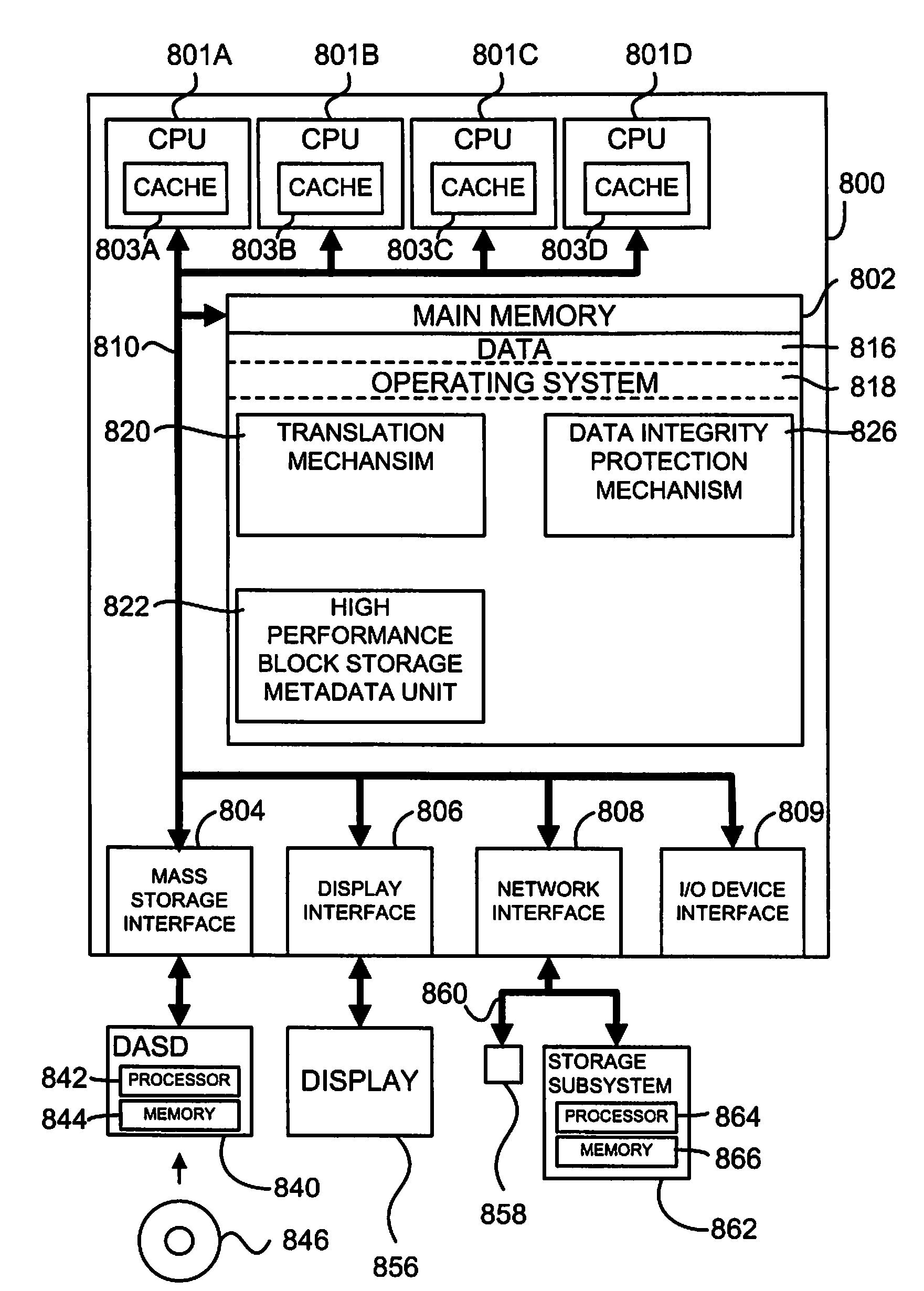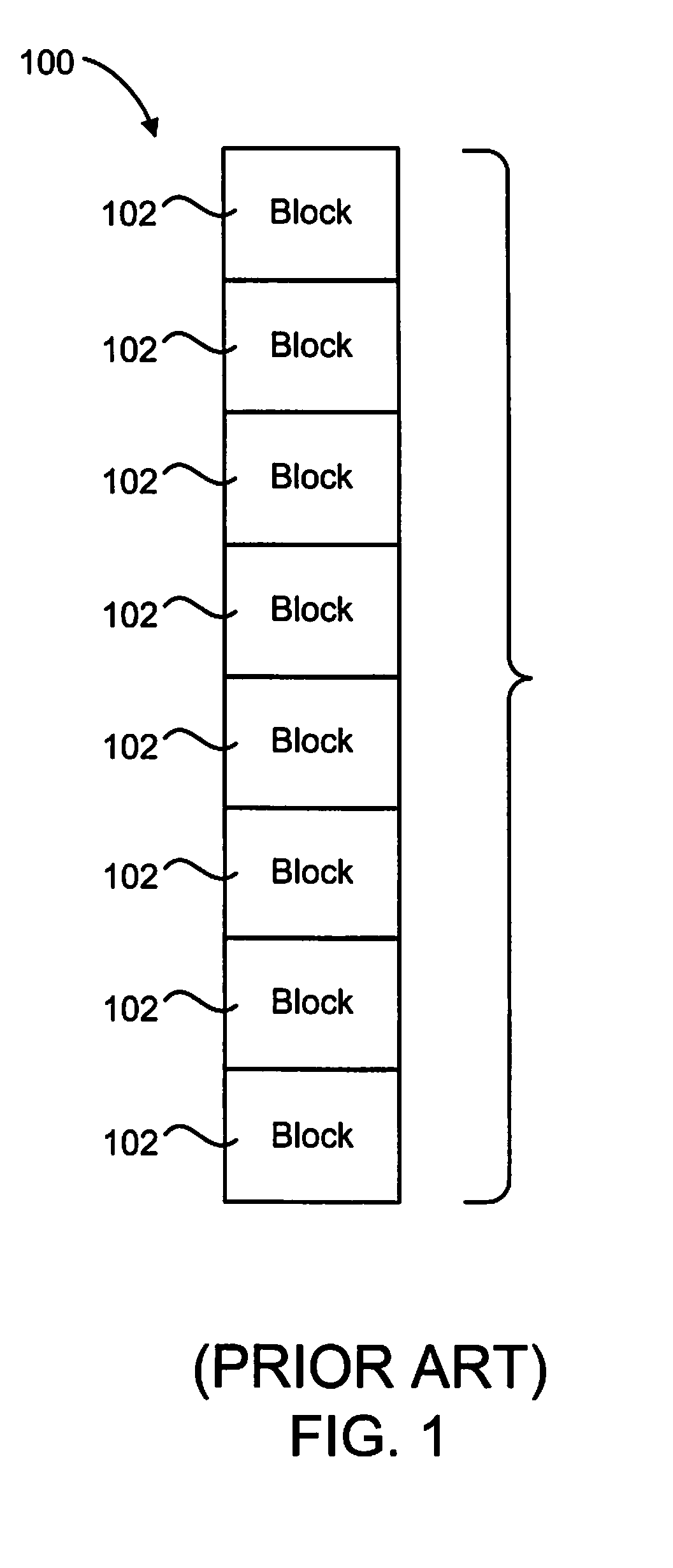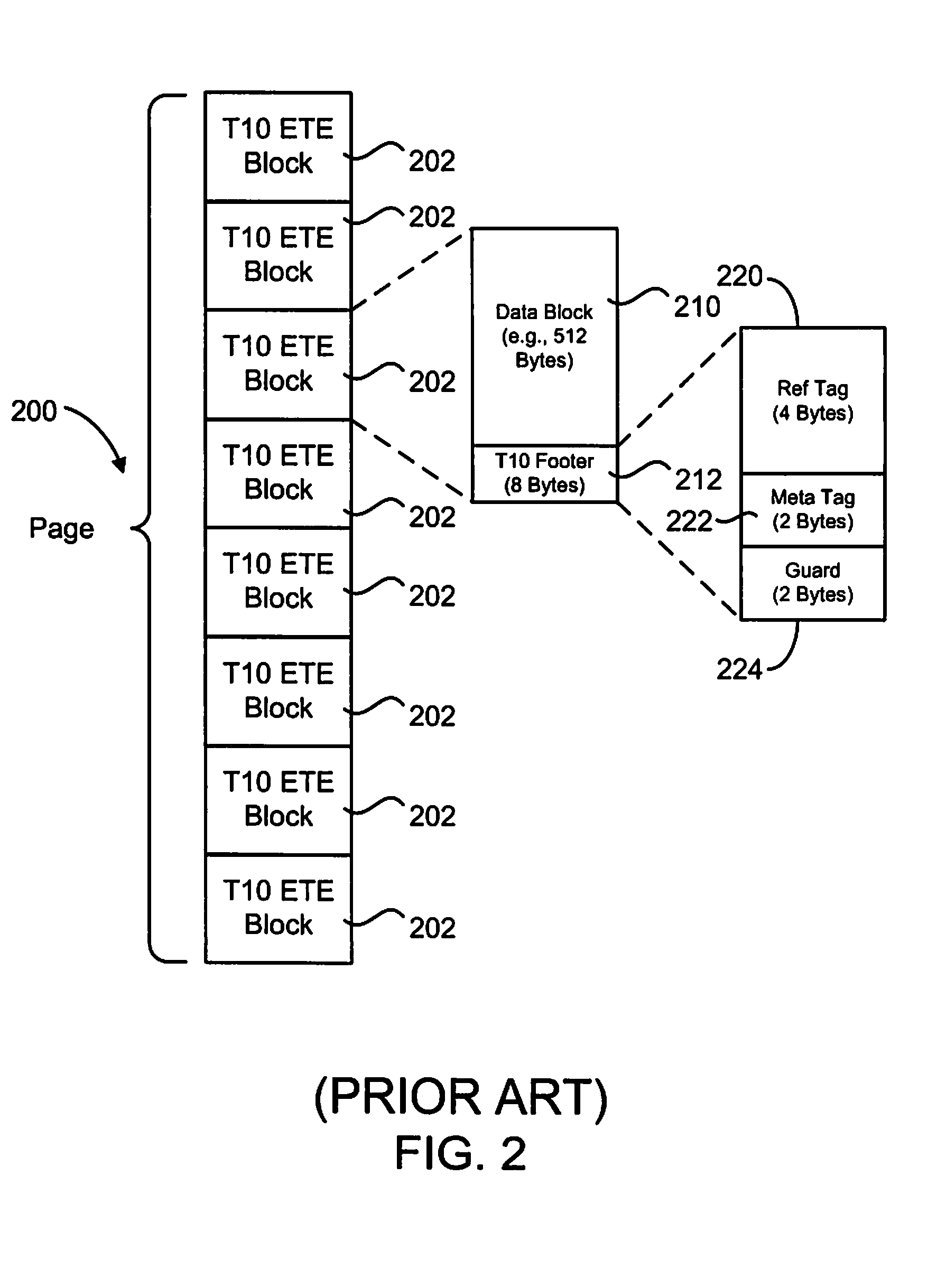Data Protection for Variable Length Records by Utilizing High Performance Block Storage Metadata
a data protection and variable length technology, applied in the field of digital data processing, can solve problems such as t10 end-to-end data protection architecture, no standard methods for providing data protection for mainframes, and unfortunate drawbacks
- Summary
- Abstract
- Description
- Claims
- Application Information
AI Technical Summary
Benefits of technology
Problems solved by technology
Method used
Image
Examples
Embodiment Construction
[0046]1.0 Overview
[0047]In accordance with the preferred embodiments of the present invention, an enhanced mechanism for providing data protection for variable length records utilizes high performance block storage metadata. In one embodiment, an emulated record that emulates a variable length record, such as a Count-Key-Data (CKD) record or an Extended-Count-Key-Data (ECKD) record, is generated by a Host Bus Adapter (HBA) of a mainframe system. The emulated record comprises a sequence of extended fixed-length blocks, each of which includes a data block and a footer. A confluence of the footers defines a high performance block storage metadata unit associated with the emulated record and includes a checksum that covers all data blocks and all footers of the entire emulated record. In various embodiments, the checksum is checked during transit of the emulated record to and / or from a storage subsystem (e.g., by the HBA when the emulated record is received from the storage subsystem, a...
PUM
 Login to View More
Login to View More Abstract
Description
Claims
Application Information
 Login to View More
Login to View More - R&D
- Intellectual Property
- Life Sciences
- Materials
- Tech Scout
- Unparalleled Data Quality
- Higher Quality Content
- 60% Fewer Hallucinations
Browse by: Latest US Patents, China's latest patents, Technical Efficacy Thesaurus, Application Domain, Technology Topic, Popular Technical Reports.
© 2025 PatSnap. All rights reserved.Legal|Privacy policy|Modern Slavery Act Transparency Statement|Sitemap|About US| Contact US: help@patsnap.com



